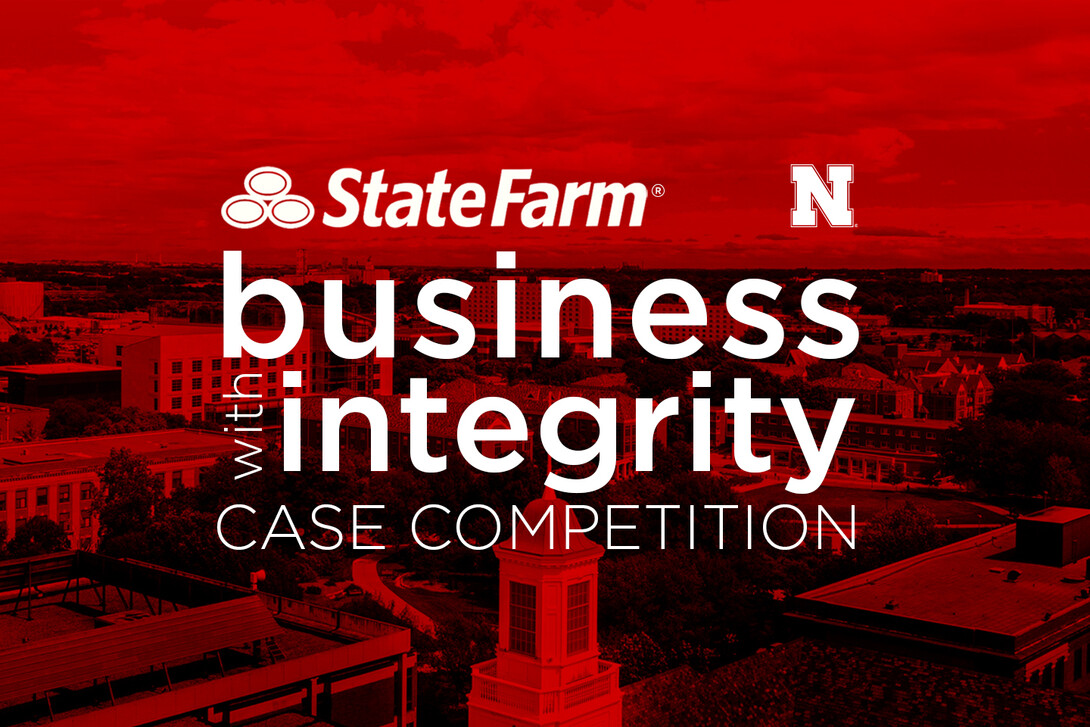
In today’s society, increasing issues with corruption and scandal catch the public’s attention, leading to a rising appreciation for ethics and social responsibility as essential criteria for business success. The College of Business seeks to showcase ethical behavior as a decision-making strategy by providing opportunities for ethics education to future professionals.
Undergraduate and graduate students at the University of Nebraska–Lincoln can apply their values and knowledge to a difficult real-world situation in the inaugural State Farm Business with Integrity Case Competition. Teams should register by 5 p.m. on Oct. 23.
Teams of three to four students will compete for up to $1,500 in cash prizes by analyzing a contemporary issue in business and recommending a strategic plan that demonstrates business with integrity. Qualifying teams in the undergraduate and graduate divisions will also interact with and get feedback from College of Business advisory board members representing a number of respected organizations.
“We hope interdisciplinary teams from across the university will participate in the case competition. Everyone will be faced with ethical dilemmas throughout their lives, and we want to help provide tools to navigate these ethical issues,” said Kathy Farrell, James Jr. and Susan Stuart Endowed Dean of the College of Business. “We appreciate State Farm for their continued support of these efforts.”
The virtual case competition offers an example of ingenuity and collaboration during the COVID-19 pandemic. In a long-term partnership, State Farm previously provided funding support for a national expert to present on ethics to more than 1,000 students. This past fall, college leadership and State Farm chose to forego the lecture format for a deeper learning experience by holding a competition where student teams prepared and presented an ethics case in front of a panel of judges.
“This was fortunate due to the constraints on meeting in large groups since the pandemic hit,” said Tawnya Means, assistant dean and assistant professor of practice in management. “With an online case competition, we can expand participation to more than we had originally intended, and we are looking forward to seeing what our university and college community present.”
While planning the competition, Means was working closely with a Big Ten colleague at the Penn State Smeal College of Business. Michelle Darnell, director of Penn State’s Tarriff Center for Business Ethics and Social Responsibility, shared her experience with their case competition that ran the past two years. The conversation sparked a partnership to host the case at both institutions through a shared vision that integrity is a cornerstone of sustainable success in business.
“As we look at how higher education is responding to the pandemic, we see some great examples of how institutions are rethinking how things have been done in the past. Collaboration between such highly reputable colleagues can lead us to strive for more, to do more, to open ourselves to other perspectives, and to reach a wider audience,” said Means. “Our hope is that if this collaboration goes well, it could be a model for a wider audience to participate and even to compete against other excellent schools.”
Students interested in competing in this hands-on experience can attend an online Information Session hosted at 6 p.m. Oct.16. Learn more and register a team online.







